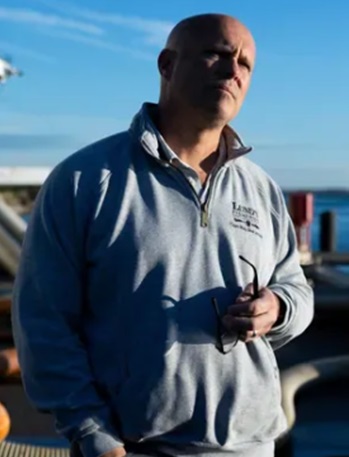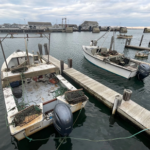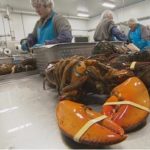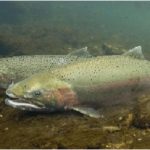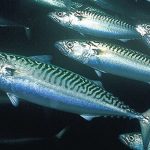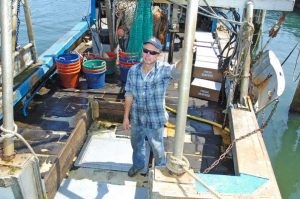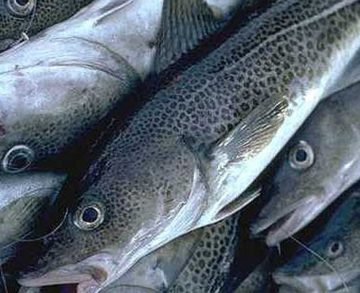Tag Archives: lawsuit
Central Coast fishermen sue California Coastal Commission over wind energy
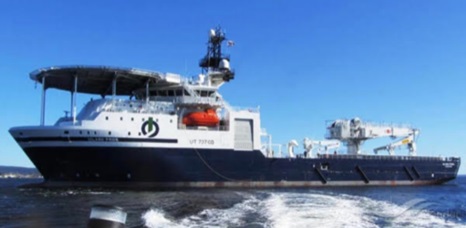 Fishermen from Morro Bay and Port San Luis recently filed a legal challenge against the California Coastal Commission for not requiring wind energy companies to abide by Bureau of Ocean Energy Management rules before providing permits for sonar testing, the second lawsuit the groups have filed against the commission. In 2022, the federal government auctioned off three offshore wind energy sites located between 20 and 30 miles off the coast near Morro Bay. Then in Dec. 2023, the state issued a permit allowing survey work to begin. The fisherman organisation’s latest lawsuit, filed on Sept. 6, argues that the Coastal Commission required the wind energy companies, including Equinor, to “have an independent liaison that is responsible for the coordination and communication of site activities with affected commercial and recreational fishing communities and harbor districts.” The fishing liaison is required to work with fishing communities and the harbor districts to coordinate survey and other activities. more, >>CLICK TO READ<< 18:18
Fishermen from Morro Bay and Port San Luis recently filed a legal challenge against the California Coastal Commission for not requiring wind energy companies to abide by Bureau of Ocean Energy Management rules before providing permits for sonar testing, the second lawsuit the groups have filed against the commission. In 2022, the federal government auctioned off three offshore wind energy sites located between 20 and 30 miles off the coast near Morro Bay. Then in Dec. 2023, the state issued a permit allowing survey work to begin. The fisherman organisation’s latest lawsuit, filed on Sept. 6, argues that the Coastal Commission required the wind energy companies, including Equinor, to “have an independent liaison that is responsible for the coordination and communication of site activities with affected commercial and recreational fishing communities and harbor districts.” The fishing liaison is required to work with fishing communities and the harbor districts to coordinate survey and other activities. more, >>CLICK TO READ<< 18:18
Fishermen Join Lawsuit Against Vineyard Wind After Blade Failure
 The New England Fishermen’s Stewardship Association (NEFSA) has called for the First U.S. Circuit Court of Appeals to reconsider the dismissal of a lawsuit against the Department of the Interior regarding the safety of Vineyard Wind’s turbines. The case, RODA v. Department of the Interior, is scheduled for oral arguments on Thursday. Jerry Leeman, CEO of NEFSA, highlighted recent issues related to the Vineyard Wind project, particularly a blade malfunction that resulted in debris being scattered across important fishing areas. “The Responsible Offshore Development Alliance (RODA) put the government on notice over two years ago that Vineyard Wind’s turbines aren’t safe. The recent blade disaster has scattered debris over a huge swath of historic fishing grounds, creating serious hazards for mariners and marine life,” Leeman stated. more, >>CLICK TO READ<< 07:59
The New England Fishermen’s Stewardship Association (NEFSA) has called for the First U.S. Circuit Court of Appeals to reconsider the dismissal of a lawsuit against the Department of the Interior regarding the safety of Vineyard Wind’s turbines. The case, RODA v. Department of the Interior, is scheduled for oral arguments on Thursday. Jerry Leeman, CEO of NEFSA, highlighted recent issues related to the Vineyard Wind project, particularly a blade malfunction that resulted in debris being scattered across important fishing areas. “The Responsible Offshore Development Alliance (RODA) put the government on notice over two years ago that Vineyard Wind’s turbines aren’t safe. The recent blade disaster has scattered debris over a huge swath of historic fishing grounds, creating serious hazards for mariners and marine life,” Leeman stated. more, >>CLICK TO READ<< 07:59
We’re not ‘sinister’: Menhaden fish processers want lawsuit dismissed
 As it said it would, Cooke Inc. has asked a judge to dismiss a lawsuit filed in a federal district court that claims the seafood company is defrauding the U.S. in the operation of the last East Coast menhaden processing facility. Known colloquially as pogies and bunker, menhaden fish kills have occasionally caused a stink at the Jersey Shore. The Canadian-based outfit said in its motion to dismiss that the two private citizens who brought the case against them are trying to make them appear “sinister.” “From the moment we became aware of this case, we have been eager to show that the allegations are inaccurate. Our legal filing underscores several key misstatements from the complaint and offers concrete evidence that they are false,” Cooke Inc. said in a prepared statement to the press. “We look forward to the court process and further opportunities to prove that the allegations are baseless.” more, >>CLICK TO READ<< 13:42
As it said it would, Cooke Inc. has asked a judge to dismiss a lawsuit filed in a federal district court that claims the seafood company is defrauding the U.S. in the operation of the last East Coast menhaden processing facility. Known colloquially as pogies and bunker, menhaden fish kills have occasionally caused a stink at the Jersey Shore. The Canadian-based outfit said in its motion to dismiss that the two private citizens who brought the case against them are trying to make them appear “sinister.” “From the moment we became aware of this case, we have been eager to show that the allegations are inaccurate. Our legal filing underscores several key misstatements from the complaint and offers concrete evidence that they are false,” Cooke Inc. said in a prepared statement to the press. “We look forward to the court process and further opportunities to prove that the allegations are baseless.” more, >>CLICK TO READ<< 13:42
‘We cannot fish in a wind farm’: Local fishermen file lawsuit over offshore wind project
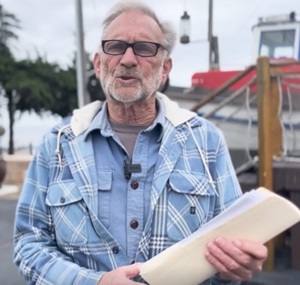 Many people in Morro Bay have mixed feelings about a planned offshore wind project. Now, a lawsuit has been filed. The Morro Bay Commercial Fishermen’s Organization and the Port San Luis Commercial Fisherman’s Association claim some rules and regulations related to the project have not been followed. The Morro Bay Commercial Fishermen’s Organization was incorporated in 1972 and has around 100 members. “We’ve been here for a while and we’ve got an incredibly good reputation in all of those years, and we are very proud of it,” said Jeremiah O’Brien, Morro Bay Commercial Fishermen’s Organization Vice President. more, >>click to read<< 06:52
Many people in Morro Bay have mixed feelings about a planned offshore wind project. Now, a lawsuit has been filed. The Morro Bay Commercial Fishermen’s Organization and the Port San Luis Commercial Fisherman’s Association claim some rules and regulations related to the project have not been followed. The Morro Bay Commercial Fishermen’s Organization was incorporated in 1972 and has around 100 members. “We’ve been here for a while and we’ve got an incredibly good reputation in all of those years, and we are very proud of it,” said Jeremiah O’Brien, Morro Bay Commercial Fishermen’s Organization Vice President. more, >>click to read<< 06:52
Cape May fishermen at center of major U.S. Supreme Court case
On Wednesday, the justices heard testimony in Loper Bright Enterprises v. Raimondo. The justices are deciding whether to uphold or overrule the four-decades old Chevron v. Natural Resources Defense Council decision. The justices heard three-and-a-half hours of oral argument this week. Multiple media outlets reported the justices asked questions indicating that the Chevron doctrine is unlikely to remain fully intact. The fishermen are challenging the National Marine Fisheries Service for requiring the herring industry to take on the cost of paying observers. Who is supporting the fisherman and why? The fishermen are represented by the Cause of Action Institute and New Civil Liberties Alliance. Groups such as the Cato Institute, Christian Employers Alliance, and members of Congress such as Sen. Ted Cruz and Speaker of the House, Mike Johnson, have filed briefs in support of the fishermen. more, >>click to read<< 12:15
Lawsuit challenges new limits on offshore lobster traps
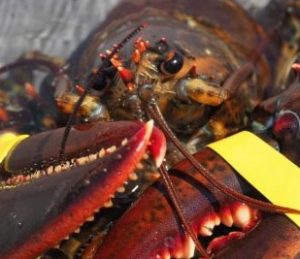 A New Hampshire lobster boat and a lobstermen’s association have filed a federal lawsuit to stop changes that would decrease the number of traps that can be used. The changes are for Area 3, which is about 30 miles offshore and runs up to the Canadian border down to the Carolinas. “That’s what this is supposed to be about, conservation of the resource,” Arthur “Sooky” Sawyer, president of the Massachusetts Lobstermen’s Association, said. Video, >>click to read<< 07:02
A New Hampshire lobster boat and a lobstermen’s association have filed a federal lawsuit to stop changes that would decrease the number of traps that can be used. The changes are for Area 3, which is about 30 miles offshore and runs up to the Canadian border down to the Carolinas. “That’s what this is supposed to be about, conservation of the resource,” Arthur “Sooky” Sawyer, president of the Massachusetts Lobstermen’s Association, said. Video, >>click to read<< 07:02
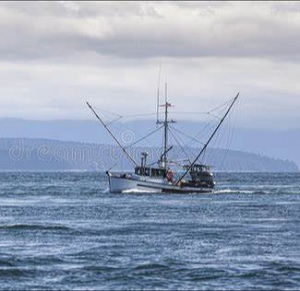
Letter: Lawsuit wrongly accuses salmon trollers
In the fall and winter, you can find me in Eastern Washington, working on building a new 50-foot salmon troller. Every year when June 20th comes, I trek north to my second home, southeast Alaska. From July to September, I can be found commercial fishing on a 40-foot salmon troller out of Sitka, Alaska. I’m not the only one who migrates every summer to southeast Alaska to make my living; other residents in Eastern Washington also head to Alaska to participate in this iconic salmon fishery. This summer is different though. Hundreds of other fishermen and I are left not knowing if we’ll have an income this year due to Wild Fish Conservancy’s attack on small-boat family fishermen through its misguided lawsuit,,, >click to read and comment<14:47

Lawsuit claims US federal government violated regulations in approving Massachusetts offshore wind project
A Texas non-profit research institute that aims to promote free enterprise in Texas and the nation is acting on behalf of fishing companies in Massachusetts, a state 2,000 miles away, in a lawsuit that seeks to stop development of the Vineyard Wind offshore wind project. The Texas Public Policy Foundation (TPPF) has named the US Department of the Interior, the US Department of Commerce, the US Department of Defense and other agencies and individuals as defendants in the suit. The lawsuit, filed in December 2021, claims the defendants violated the Outer Continental Shelf Lands Act, the Endangered Species Act, the Clean Water Act, the Marine Mammal Protection Act, the National Environmental Policy Act, and their respective rules and regulations. >click to read< 10:54
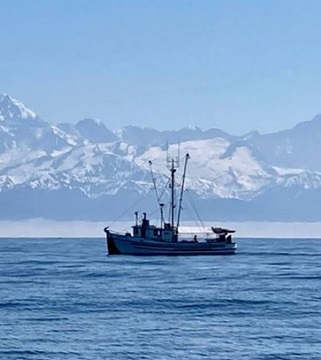
Lawsuit threatens Washington’s commercial fishing families | Opinion
While Alaska might be more than 1,000 miles away, Washington shares a lot more with the 49th State than most people realize. This is especially true in the fishing industry where the relationship between Washington and Alaska runs deep and ripples throughout Washington’s economy and communities. We are seeing the complexities and the nuances of this relationship play out right now in a lawsuit that the Seattle-based Wild Fish Conservancy brought against the National Marine Fisheries Service in 2020 with the goal to shut down southeast Alaska’s small boat, hook-and-line Chinook troll fishery in the misguided name of saving the Southern Resident killer whales. >click to read< 14:57
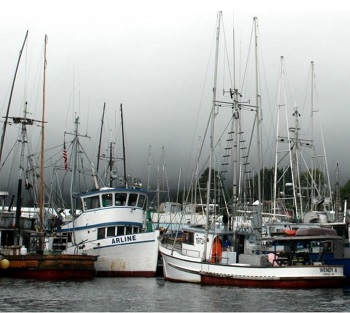
Southeast Alaska communities set to join opposition to lawsuit that threatens king salmon fishery
Ketchikan, Wrangell and Petersburg are set to join a growing chorus of Alaska voices highlighting the impact the suit could have on the region’s fishing fleet. The lawsuit from the Washington state-based Wild Fish Conservancy centers on an endangered Puget Sound population of orcas known as Southern Resident killer whales. Killer whales eat salmon, especially big, meaty king salmon, and the conservation group argues federal officials haven’t properly accounted for the impact the Southeast king salmon fishery has on the Puget Sound orcas. Late last year, a federal judge issued a report that threatens to close the Southeast king salmon fishery until the National Marine Fisheries Service comes up with a fix. >click to read< 11:50
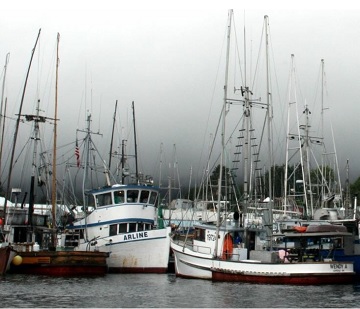
Sitka Assembly considers helping Southeast trollers in legal fight that could shut down the fishery
The Seattle-based environmental group Wild Fish Conservancy wants to stop the Southeast troll fisheries, which they say harm an endangered population of orcas. And in December, a federal judge in Washington issued a report that puts the fisheries at risk of closure. The Alaska Trollers Association is a defendant in the 2020 suit against the National Marine Fisheries Service. Sitka fisherman Matt Donohoe is the president of the Trollers Association. He says they object to the report and expect their legal expenses to increase. “Anyone claiming that Southern Resident killer whales are starving because Alaska trollers were taking food from the mouths of their babies would be laughed out of court. That’s what we thought,” >click to read< 11:48

Gulf Coast Seafood Alliance Supports Lawsuit Challenging Unlawful Red Grouper Quotas
Commercial fishermen and members of the Gulf of Mexico seafood industry have filed a lawsuit challenging the legality of a recent decision by NOAA Fisheries to reallocate red grouper quota to recreational fishermen at the expense of the commercial fishery. The Gulf Coast Seafood Alliance supports the efforts by the Gulf of Mexico Reef Fish Shareholders’ Alliance, Southern Offshore Fishing Association, and A.P. Bell Fish Company to challenge this decision, in an effort to restore a fair allocation for commercial fishermen. The lawsuit, filed late on Friday in the U.S. District Court for the District of Columbia, challenges recent red grouper allocations approved by NOAA as part of Amendment 53 to the Fishery Management Plan for the Reef Fish Resources of the Gulf of Mexico. >click to read< 16:16
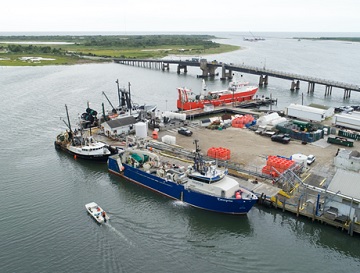
Mid-Water Herring Trawlers to Return to Inshore Waters – Court Overturns Exclusion Zone
Herring fishermen from New England and the Mid-Atlantic won a crucial decision last week when a federal judge in Boston ruled in their favor against an exclusion zone in Northeast U.S. waters. The court ruled that a National Marine Fisheries Service (NMFS) measure excluding the mid-water trawl fleet from productive inshore fishing grounds violated the Magnuson-Stevens Act, the nation’s premier fisheries law. The lawsuit was brought by the Sustainable Fisheries Coalition (SFC), a trade group representing herring and mackerel fishing companies. >click to read< 08:16
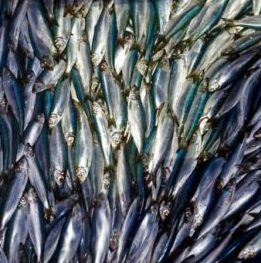
Fishermen sue to end industry funded monitoring program
A group of fishing companies in New England is bringing its bid to try to end industry-funded monitoring programs to federal appeals court. The companies are part of the industry that harvests Atlantic herring, which are heavily fished off the East Coast. The federal government requires herring fishing boats to participate in, and pay for, at-sea monitoring programs. >click to read< 13:30
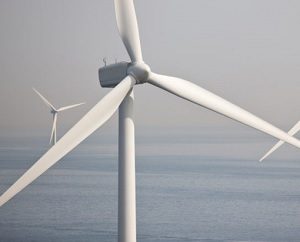
Offshore Wind: Nantucket project faces lawsuit that could impact Skipjack, U.S. Wind projects
Environmentalists are concerned about impact to sea mammals, such as whales and dolphins, The American Coalition for Ocean Protection has been created by the Caesar Rodney Institute to push back against offshore wind development, and they have joined the Vineyard Wind legal case as technical advisors. The case against Vineyard Wind could set a precedent for legal action to be taken locally, where Orsted and U.S. Wind have already secured OREC approvals to begin offshore wind development. The Vineyard Wind case claims there could be environmental harm to the threatened right whale from the project. A coalition in Cape Cod, Mass. the Nantucket Residents Against Turbines, in August filed a suit that calls for delay in the development of 2,000 wind turbines off Nantucket Island and Martha’s Vineyard. >click to read< 12:31
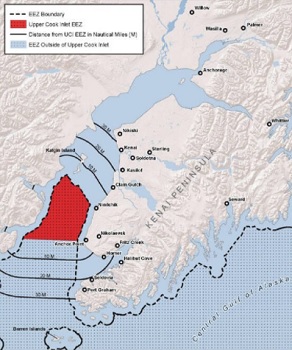
Kenai Peninsula Municipalities still working to oppose EEZ closure
Peninsula municipalities are still fighting back against the closure of federal waters in Cook Inlet to commercial salmon fishing. The city councils of both Kenai and Homer have agreed to file amicus briefs in a lawsuit brought forth by the United Cook Inlet Drift Association, which has a goal of reopening the waters before the 2022 summer fishing season. Groups across the peninsula, including the cities of Homer and Kenai as well as the Kenai Peninsula Borough, have consistently voiced their opposition to the closure of Cook Inlet’s federal waters to commercial salmon fishing. >click to read< 10:59
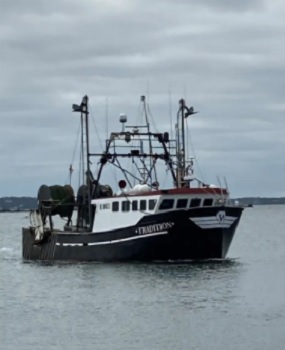
Windfarm plans for Atlantic coast hit fishermen hard and threaten US food supply
Tom Williams, a lifelong fisherman whose sons now captain the family’s two boats, doesn’t scare easily—not after the storms, regulations and economic ups and downs he’s weathered. But the wind farms planned for much of the nation’s Atlantic coastline do scare him. His own extended family began fishing in Rhode Island in 1922. “What’s going to be left for my grandchildren?” he asks. “It’s a way of life, and this is the biggest threat we’ve faced.” >click to read< 21:00

Judge dismisses case to ban lobster lines, but opens door to future right whale protections
A federal judge may have delivered the legal roadmap to ban lobstermen from using vertical buoy lines in a long-awaited ruling this week. The case centered around concerns that the lines, authorized by the state of Massachusetts, entangle and kill critically endangered North Atlantic right whales. But Judge Indira Talwani dismissed the case because, she wrote, the plaintiff Max Strahan, a controversial whale advocate, had questionable credibility in some instances and failed to prove that he has a personal stake, or standing, in the case, a critical component of the lawsuit. >click to read< 12:37
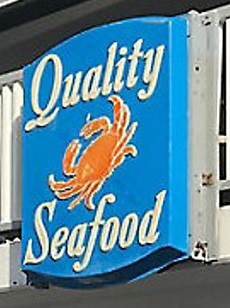
Fishing and seafood companies sue over oil spill
Redondo Beach market Quality Seafood is among plaintiffs in a proposed class-action suit against pipeline company Amplify Energy Corp. on behalf of commercial fishing, diving and seafood companies seeking damages for expected lost revenue as a result of last weekend’s massive oil spill. Plaintiffs in the lawsuit include LBC Seafood Inc., a family-owned wholesaler that purchases lobsters from fishers in Orange County with sales to wholesalers and distributors who distribute the product throughout California and the world. >click to read< 09:28
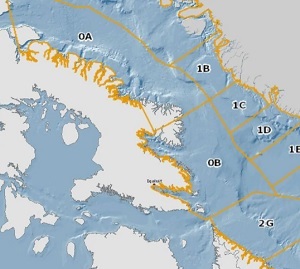
Nunavut Inuit suing feds over fishing license allocations to Mi’kmaw company
In a lawsuit filed earlier this month, Nunavut Tunngavik Incorporated and the Qikiqtani Inuit Association asked the federal court to quash a decision by Canada’s Minister of Fisheries and Oceans to transfer the licences for Greenland halibut and shrimp from seafood company Clearwater Foods to the coalition, after the Mi’kmaw group partnered to buy the company in January. Reached by phone on Wednesday, Jordan, through her staff, declined to comment following her loss in Monday’s federal election. The lawsuit describes how Nunavut fishers have only held about 50 per  cent of total fishing quotas for all species off Nunavut’s coast, which Inuit argue is disproportionately low compared to the 90 per cent that fisheries in Atlantic provinces have off their own coasts, an acknowledgement the federal government and DFO have made on several occasions. >click to read< 09:28
cent of total fishing quotas for all species off Nunavut’s coast, which Inuit argue is disproportionately low compared to the 90 per cent that fisheries in Atlantic provinces have off their own coasts, an acknowledgement the federal government and DFO have made on several occasions. >click to read< 09:28
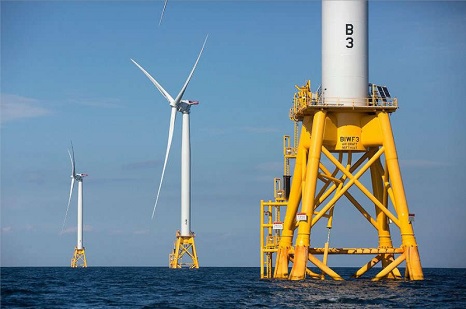
Why Offshore Wind Farms Face Lawsuits – The American Coalition for Ocean Protection
Nantucket residents have filed a landmark lawsuit over federal approval of Vineyard Wind, the first industrial scale offshore wind project in the U.S. Federal law protects existing ocean uses: commercial fishing, vessel traffic, the viewshed, and endangered species from new energy projects. Since federal approvals of all offshore wind projects will likely use the same flawed process, a court win for this lawsuit may stop all the projects. Specifically, Ackrats is the group filing the complaint and is concerned about Vineyard Wind’s negative impact on the North Atlantic right whale, “one of the most critically endangered species on the entire planet.” Those Nantucket residents are not alone. Beach communities from North Carolina to Maine and the Great Lakes joined together to form the American Coalition for Ocean Protection. >click to read< 16:13
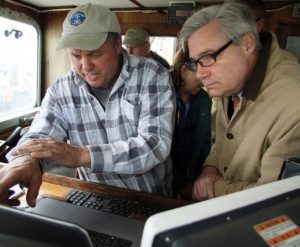
Fishing group’s lawsuit challenges fed review of offshore wind project
A second group has filed a federal lawsuit challenging the government’s approval of the offshore wind project that is expected to generate cleaner electricity for more than 400,000 homes and businesses in Massachusetts starting in late 2023. A coalition of fishing industry groups called the Responsible Offshore Development Alliance petitioned the U.S. Court of Appeals for the First Circuit on Monday to review the Department of the Interior and Bureau of Ocean Energy Management’s approval of the Vineyard Wind I project, arguing that the green light “adds unacceptable risk” to the fishing industry without addressing its long-held concerns. >click to read< 12:18
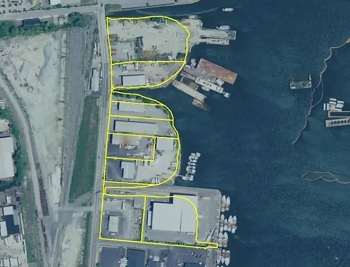
Waterfront businesses’ lawsuit against New Bedford and Port Authority dismissed
Marine Hydraulics and Nordic Fisheries sued the city in January, alleging it was breaching a 99-year lease contract and misleading the companies regarding the expansion of the North Terminal, located on the west side of the harbor. Nordic Fisheries bought Marine Hydraulics’ assets and lease in 2015 according to court records, but both companies filed the lawsuit. The city filed a motion to dismiss it in March. The businesses stated in their complaint that much of their work depends on immediate access to the water to haul, service and store vessels, and that without direct access, their companies would be irreparably harmed. >click to read< 10:05
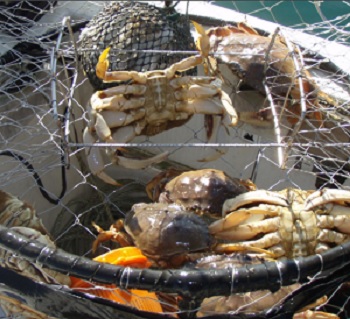
This Year’s Dungeness Crab Fishery a Shell of its Former Self
New regulations and price strikes delayed the start of the season. Dungeness crab fishermen face the worst catch numbers in decades. CDFW monitors for whales, and sea turtles and can delay or halt Dungeness crab commercial fishing if they determine that the risk of entanglement is high. That happened twice at the beginning of this season. The presence of humpback whales kept the fishermen out of the water from the originally scheduled start date of Nov. 15 until Dec. 23. Some fishermen, like Ben Platt, president of the California Coast Crab Association, worry that the new regulations will squeeze the season into a few months every year. Half Moon Bay-based fisherman Tim Obert agrees. “The Thanksgiving market’s huge for us,” he says. “The RAMP has taken that out.” >click to read< 21:10
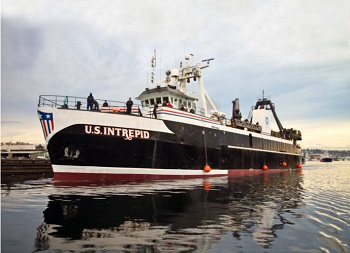
Supreme Court hears case in dispute over fisheries landings tax
Millions of dollars of fish landing taxes are at stake in a lawsuit now being deliberated by the Alaska Supreme Court,, The court heard oral arguments Oct. 21 in a lawsuit brought against the State of Alaska by Seattle-based Fishermen’s Finest Inc. in which the company argues Alaska’s fishery resource landing tax violates a prohibition on taxes or fees levied against goods on the way to export in the U.S. Constitution. Jim Torgerson, an attorney for Fishermen’s Finest, argued that the fish harvested and processed in federal waters by the company’s catcher-processor vessels have started their journey to foreign markets when it arrives at Alaska ports but before being shipped worldwide.>click to read<11:27

Alaska Supreme Court hears challenge to fish landing tax
Since the 1990s, Alaska has taxed seafood caught by factory trawlers and floating processors through the Fisheries Resource Landing Tax. Even though the fish is caught outside the 3-mile line in what’s considered federal waters, it’s often brought to Alaska fishing ports before loaded on cargo vessels and shipped overseas. But the Washington state company, Fisherman’s Finest, is now challenging the state’s tax in court, arguing it violates a pair of provisions of the U.S. Constitution that restricts coastal states from imposing tariffs or duties on goods brought into and out of a state. >click to read< 17:28
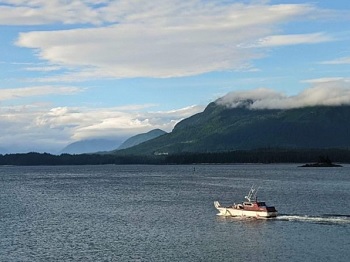
Metlakatla Indian Community suing Gov. Mike Dunleavy and senior state officials over fishing rights
The state’s sole Native reservation says the commercial fishing permit system unfairly prevents local fishermen from harvesting on their traditional fishing grounds, a right Metlakatla says is guaranteed to the tribe by Congress. The tribe of Metlakatla is asking a federal judge to prevent the state from requiring commercial fishing permits for tribal members. The people of Metlakatla have called Annette Island home since the late 19th century. That’s when roughly 820 Tsimshian people migrated with an Anglican missionary from coastal British Columbia to the then-uninhabited islands south of Ketchikan. But they weren’t just after land for a settlement. “The Annette Islands would have been worthless without access to fish and its adjacent fisheries,” attorneys for Metlakatla wrote in a lawsuit filed August 7 in federal court. >click to read< 18:06
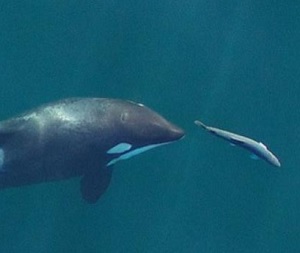
Judge weighs shutting down Southeast Alaska Chinook fishery
Fishermen in Southeast Alaska could see their season cut short if a federal judge issues an injunction requested by a Washington environmental group to protect the food supply of a subpopulation of orcas. The Wild Fish Conservancy filed a lawsuit against NOAA,,, “We are getting blamed for harvesting their food source, which really isn’t the cause of the problem,” Amy Daughery, executive director of the Alaska Trollers Association said. “The problem as we see it, is the exponential population growth in Seattle, which has lead to a lot of toxicity and pollution and habitat loss in that area. And so these whales are really struggling, this one population. The Northern killer whales that we see off the coast of Southeast Alaska are doing very well. In fact they’ve increased.” >click to read< 10:19
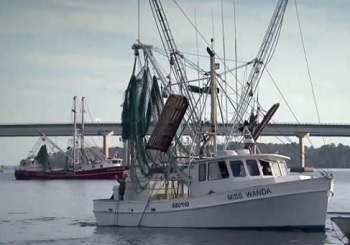
A group threatens a lawsuit over NC shrimping rules
A group pushing for changes to North Carolina’s commercial fishing rules sent formal notice last week that it plans to sue the state and one of the largest shrimping companies on the coast. The N.C. Coastal Fisheries Reform Group said that after “over a decade of unsuccessful attempts to engage in meaningful fisheries management reform dialog” with multiple governors, lawmakers and state officials it was filing a notice of claim under the Federal Clean Water Act. That starts a 60-day clock ahead of a lawsuit. The group said in a news release that, with another shrimping season approaching, time is of the essence. >click to read< 12:00






